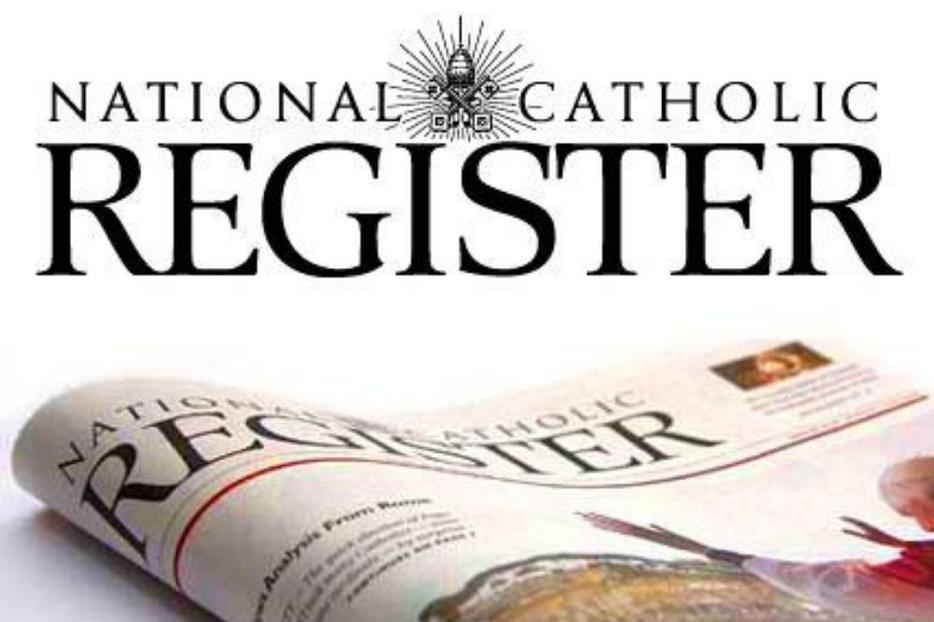Of Adoration, Church and State and Morality
Letters 09.25.22

Church and State
I really enjoy reading your Catholic newspaper when I get the chance to do so. A fellow inmate here gets a subscription and passes it around.
I read an article recently in the Catholic Messenger from Davenport, Iowa, that another inmate provides. There were two articles catching my eye about abortion. One was about Archbishop Salvatore Cordileone, with his opinion on Nancy Pelosi, and the other about some bishops there in Iowa supporting the right to life of the unborn and the Supreme Court’s then-possible decision on Roe v. Wade. I wholeheartedly agree with the Church’s beliefs and thank God for answering our prayers with the Supreme Court’s decision. I was hoping for a unanimous decision to help thwart political repercussions, but that didn’t happen.
Thinking back about Justice Antonin Scalia, with him also being Catholic, when he said that “the business of the state is not God’s business.” I’ve never agreed with that statement and the idea of the separation of Church and state. We are God’s business, and everything about us.
Aren’t our laws of the state basically derived from God’s laws — “Thou shall not kill, steal, lie,” etc.? I think the state has gone overboard enforcing our right to the pursuit of happiness.
It is hard for me to believe President Joe Biden and Speaker Nancy Pelosi, claiming to be devout Catholics, can support the killing of the innocent unborn. I hope that the Church would consider the excommunication from the Church of President Biden for his continued support of abortion and his executive orders making it easer for women to get abortions. This would show the world how grievous we believe this sin is and not just be passive in these actions, but be proactive in our support of life.
I am by no means a scholar or theologian, but a simple Catholic man with simple ideas.
I’m certain our Lord Jesus Christ, when he mentioned “give to Caesar what is Caesar’s and to God what is God’s,” wasn’t implying Caesar had any authority over God, for everything is God’s.
Why can’t we, as Catholics, speak out politically and push our Catholic beliefs on our political candidates? Isn’t “freedom of speech” one of our inalienable rights? Why not ask our fellow Catholics to not necessarily vote Republican or Democratic, but Catholic? We need to stand up for God’s laws and not be influenced by secular standards that have gotten us where we are today, with such things as abortion and gay marriage.
Stephen J. Schneider
Forrest City, Arizona
The Answer Is Adoration
Relevant to “Tabernacle Theft Shows Vulnerability of Catholic Churches” (front page, June 19 issue): Many suggestions were proposed for preventing such thefts, but one solution was overlooked: perpetual adoration. What if every Catholic church was open 24 hours a day, and there was always at least one faithful parishioner sitting, or kneeling, in prayer and adoration in front of the Blessed Sacrament? Certainly, that would deter a thief or anyone intent on vandalizing this sacred space.
There was a time when churches were unlocked, and anyone, at any time, could enter to visit the Blessed Sacrament and spend time with Jesus. If we truly believe Jesus is present in the consecrated Host, why do we lock him up in his home? This is equivalent to the COVID-19 lockdowns, where nursing-home residents were confined to their rooms and forbidden any visitors. We know the agonizing loneliness it caused for the residents, not to mention the pain, frustration and anxiety experienced by their loved ones. Imagine being a prisoner in your home for 40 years. This is what we have done to Jesus. This practice can be and must be stopped.
All it takes is a simple invitation, or maybe even a plea, from each pastor to ask each parishioner to commit to spending just one hour a week in prayer in front of the Blessed Sacrament. I believe many parishioners would respond, and some parishes could easily fill the entire 168-hour time slot. In addition to preventing theft and vandalism, cutting costs for security and alarm systems, think of all the graces and benefits that will flow from the continual prayers to Jesus. Isn’t it at least worth a try?
I urge all pastors who are reading this to consider how Jesus may be calling them to fulfill this request to release Jesus from his prison and allow his faithful people to visit him. The best place to start is by spending an hour with Jesus and asking him. What have you got to lose?
Lynee Roor
Albany, New York
Concern With Morality
Relevant to “Understanding The Holy Father: It’s All About the Moral Theology” (Vatican, July 3 issue). It’s truly a very thought-provoking commentary. I’ve seen other examples of Pope Francis moving toward “proportionalism” or “consequentialism” throughout the Church. Dr. Chapp called it a “counterweight to what he [Pope Francis] considers to be an overemphasis in the Church on natural-law moral reasoning with its central focus on certain moral objects as intrinsically evil.”
The other example is the cardinal he assigned (Cardinal Jean-Claude Hollerich) to head up the Church’s Synod on Synodality, who has spoken out for blessing same-sex unions and other causes similar to the German’s “Synodal Way.” This can also be seen in the Pope’s recent comments essentially giving Nancy Pelosi and other Catholic politicians a pass on their support for abortion. Even his handling of the German’s “Synodal Way” speaks toward support for “proportionalism” or “consequentialism.”
My concern here is that, taken all together, this “proportionalism” or “consequentialism” seems to be the beginning of a slippery slope toward changing the significant moral teachings and disciplines throughout the Church, maybe not during Pope Francis’ papacy, but maybe in one of the next papacies.
James Boggs
Huntsville, Texas
- Keywords:
- letters to the editor












